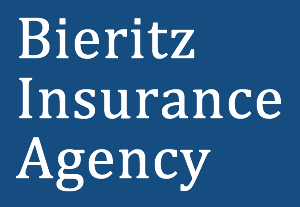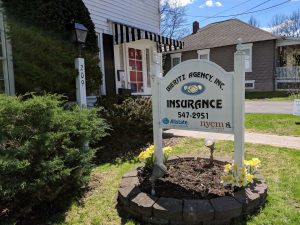The Impacts of Being Underinsured
 Insurance is meant to protect your home, your car, your belongings and your family from financially devastating incidents. Few people *like* to pay for insurance. For many, home and auto insurance seems like large expenses for something they probably will never need, and for that reason, some will choose to insure for a bare minimum in order to save more and spend less. However, while being underinsured may seem thrifty, in the long run, the money you end up having to pay will likely exceed the amount you save. Here are some of the reasons why being underinsured is more expensive than receiving sufficient insurance.
Insurance is meant to protect your home, your car, your belongings and your family from financially devastating incidents. Few people *like* to pay for insurance. For many, home and auto insurance seems like large expenses for something they probably will never need, and for that reason, some will choose to insure for a bare minimum in order to save more and spend less. However, while being underinsured may seem thrifty, in the long run, the money you end up having to pay will likely exceed the amount you save. Here are some of the reasons why being underinsured is more expensive than receiving sufficient insurance.
Expensive Emergency Repair Costs
As anybody who has had their home severely damaged after an accident or natural disaster can attest, however much they were paying on insurance, it was pocket change compared to the costs in repairs. If you don’t have enough coverage, you could be on your own when disaster strikes. What’s more, if you’re not sufficiently insured, you may run into some trouble with your local government for not adhering to local regulation codes in regards to home insurance.
Risk of Flood Damage
Some people who have insurance for most risks choose to abstain from buying flood insurance to save money. After all, most standard homeowner policies don’t automatically cover flood damage and floods are a rare occurrence anyway. This is a bad idea, however, as even with maximum FEMA flood protection, you could be left with massive deductibles, so it’s important to get additional coverage in case of these natural disasters.
High-Value Items may not be Covered
The problem with small, basic insurance policies is that they only cover general forms of damage to things like walls and floors, etc. But there are many items of significant worth like jewelry, paintings, rare coins, antiques, china and clothing that often slip through cheaper policies. There could be thousands of dollars worth in valuable items that you could lose completely without the right coverage.
An Accident Could Have a Very High Deductible
Deductibles are often not looked at very closely by people shopping for insurance. Most people prefer lower premiums even with the risk of paying high deductibles. This makes some sense financially, however, you don’t want to ignore deductibles completely, as this could lead to you spending considerably more money after an accident. A typical $500 dollar deductibles could be turned into a much higher deductible for a less expensive policy and should be considered when making decisions on the overall expense.
Your Insurance May Not Cover Your Repairs
‘Bare-boned’ insurance policies may simply not provide enough to cover your actual repair costs. If you opt for a minimal policy, make sure you review a ‘worst-case’ scenario with our team so that you can make an informed decision.
Extra Expenses Can Add Up
Finally, remember that insurance policies are not simply meant to cover the cost of damage to your house or car, they are also to help you with any extra expenses that may result. Even if your insurance covers your house in case of fire, you may have lodging expenses to pay while your home is being repaired. Likewise, if your basic insurance covers your car for accidents and repair costs, it might not reimburse you for a rental that you need to get around in the meantime. Insufficient policies often leave people hung out to dry when it comes to assisting them with additional expenses, and these expenses can add up.
Many people, especially now, are trying to take steps to save money on their monthly bills. Insurance is not the area to make cuts as your policy needs to cover expenses when filing a claim. If you’re worried that you might be underinsured, look over your home and car policies and discuss your concerns with our team at Bieritz Insurance. Review your policies each year to make sure they continue to provide adequate coverage. Remember to think about your insurance in relation to the price of your house, your property value, and the demand in the housing market in your area.

